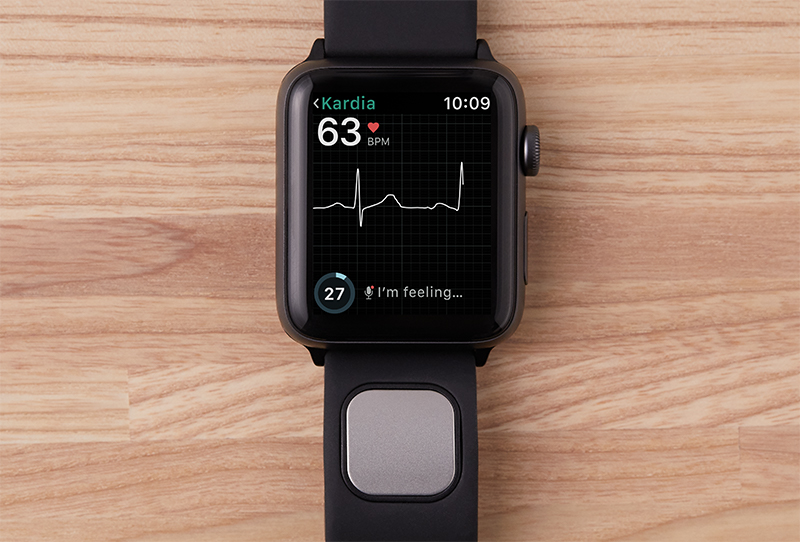
The Food and Drug Administration and the Department of Health and Human Services withdrew a proposal by the previous administration to deregulate more than 80 types of medical devices, including over-the-counter ECG devices, digital therapeutics for mental health and AI tools to flag lesions suspected of cancer. Several digital health startups, including portable ECG-device maker AliveCor, wrote in to urge continued oversight by the FDA. Photo credit: AliveCor
Federal agencies withdrew a proposal that would have deregulated 83 different types of medical devices. The proposal, set in motion by the Department of Health and Human Services in the final days of the Trump Administration, would have removed dozens of class II medical devices from regulatory review, including software tools to flag lesions for suspected cancer, digital therapeutics for mental health, and ventilators designed for home use.
The sudden change seemed to contradict statements from the Food and Drug Administration at the time, including a high-level overview of how it planned to regulate medical AI in the future.

With the Rise of AI, What IP Disputes in Healthcare Are Likely to Emerge?
Munck Wilson Mandala Partner Greg Howison shared his perspective on some of the legal ramifications around AI, IP, connected devices and the data they generate, in response to emailed questions.
In a notice published in the Federal Register on Friday, both HHS and the FDA withdrew the policy change, saying the proposed exemptions were flawed and lacked adequate scientific support.
“We did not find any evidence that HHS consulted with, otherwise involved, or even notified FDA before issuing the Notice,” they wrote.
Between January and March, several public commenters urged the HHS to withdraw the sudden change. The American Medical Association wrote in, saying the decision to exempt medical devices should rest with the FDA.
Several digital health companies also wrote in to the agency, urging it to maintain the FDA’s regulatory review of software devices, from AI tools to flag potential cancers, to digital therapeutics for mental health. For example, AliveCor, which makes ECG monitors, opposed permanently exempting over-the-counter ECG devices.
Drugmaker Otuska, which is running a pivotal trial of a digital therapeutic for major depressive disorder, also raised concerns over the sudden change.
“…This is a new class of products which has only just begun being evaluated for safety and effectiveness (both prior to marketing and in the real world) and there is a need for patients to be able to distinguish between clinically-validated, high quality treatments and the myriad of unregulated general consumer health applications,” Otsuka’s senior director of regulatory affairs, Karen Ragland, wrote in a public comment.
In January, under former secretary Alex Azar’s leadership, HHS proposed the exemptions based on a review of devices that had few or no reported adverse events in the FDA’s Manufacturer and User Facility Device Experience (MAUDE) database since the start of the pandemic. But researchers have raised concerns about adverse events being underreported in the database.
HHS also sought to exempt 50 devices from review based on a lack of death-related adverse events reported during this time period. But this would miss critical information about injuries and malfunctions. For example, for one type of device that would have been exempted, there were no reports related to deaths, but there were 52 reported injuries and 13 malfunctions.
In the notice recently published in the Federal Register, both agencies acknowledged these problems. For instance, an inaccurate reading from an electrocardiogram or a seizure monitoring system might contribute to an erroneous medical decision, but that might not necessarily be reflected in the database, they wrote.














